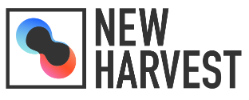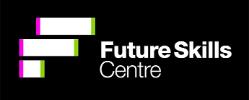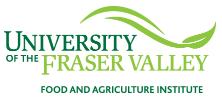Cellular agriculture consists of an emerging set of technologies for producing local, reliable dairy and meat alternatives with low environmental footprints, and the potential to operate in a variety of industrial, urban and rural spaces, and communities. Led by the Food and Agriculture Institute at the University of the Fraser Valley, this project explored the potential cellular agriculture has for enhancing and contributing to local food security, economic development, and sustainability in Canadian Communities. Based in the Fraser Valley region, the project engages government, NGOs, industry, and community members to explore social, environmental, and economic opportunities and challenges around developing a local cellular agriculture industry.
The research culminated in a final workshop, where collaborators and participants shared their key learnings from their work in the project and/or involvement in the industry, as well as the implications of these learnings for policy and action. The outcome from this work is The Role of Cellular Agriculture in Sustainable, Resilient and Just Food Systems: An Action Agenda, which can accessed by clicking the button below.
In some parts of the world you can already find, in stores, ice cream, milk, chocolate bars, cheese, and cream cheese made with animal-free dairy proteins. The dairy protein (e.g. whey) that is added into each recipe for something like this ice cream is molecularly identical to conventional sources of that protein, it just didn’t require an animal to produce it! It was produced using cellular agriculture techniques.
Cellular agriculture involves growing proteins or fats either through a cell culture (growing and propagating cells) or through fermentation (getting a microorganism to produce your compound of interest). In this diagram we focus on using fermentation processes to create dairy proteins of interest. While the idea of making dairy products without animals is exciting, it also raises lots of questions:
- How does this cellular dairy protein production process work?
- Where would this happen?
- What are the potential social, environmental, and economic costs associated with this industry?
The interactive diagram below shows at a very basic level how animal-free dairy proteins are made and provides some tentative answers to these questions. Click the boxes to learn more about the cellular dairy protein production process.
Cellular agriculture holds much promise with respect to contributing to food system sustainability, animal welfare, and resilience; however, as an emerging food production method, such benefits are not guaranteed. This suggests that the industry could develop in multiple ways that lead to different 'cellular agriculture futures'. Many studies have examined consumer perceptions of cellular agriculture products, but few of these studies have explored public perceptions of these futures for cellular agriculture (i.e., their hopes and concerns for the impacts of this novel food production technology). Recognizing this research gap, this project conducted a study in the Metro Vancouver region of British Columbia on public perceptions, hopes, and concerns around futures for the cellular agriculture industry in their home region. A report on the study can be accessed by clicking the button below.
 |
 |
This project was supported by funding from the Future Skills Centre's Shock-proofing the Future of Work program.

